-
181.Sir Percival Pott
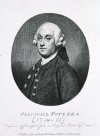
-
Sir Percival Pott was a surgeon, a founder of orthopaedics and the first scientist to demonstrate that an environmental carcinogen could cause cancer.
-
182.Sir Peter Medawar

- Sir Peter Medawar is known as the ‘father of transplantation’. His work on the rejection of grafts and his discovery of acquired immune tolerance were key to the development of tissue and organ transplants.
-
183.Dr Peter Mitchell
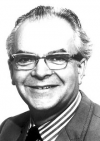
- Described as one of the most significant biologists, Peter Mitchell's revolutionary way of thinking won him a Noble Prize in 1978 when he decoded the complex mechanisms that generate energy production in living organisms.
-
184.Sir Peter Scott
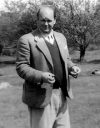
-
Sir Peter Scott was successful in many areas; he was an Olympic yachtsman, a television presenter, a gliding champion, a painter and he held the Distinguished Service Cross for gallantry. He was also a passionate conservationist who helped to establish a number of today’s environmental institutions. He was the first conservationist to be knighted in 1973.
-
185.Philip Henry Gosse
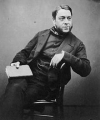
-
Philip Henry Gosse was one of the most famous naturalists of the mid-19th century. He contributed significantly to the development of the saltwater aquarium, wrote extensively about marine biology and the processes involved, along with illustrations that captured the public imagination and acted as an early sounding board for Darwin's theories on evolution.
-
186.Philip Sclater
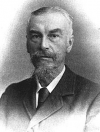
-
Sclater was celebrated during his lifetime as being the most significant contributor to systematic ornithology (the naming, classification and description of birds) and for his studies of American fauna. Working with colleagues, he characterised more than 1,000 species, 135 genera and two new families of American birds.
-
187.Rachel Carson
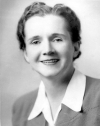
-
Rachel Carson’s attack on the use of DDT did far more than restrict the application of this pesticide, it also served to challenge a conception of science which had guided policy in the post-war world.
-
188.Reginald Koettlitz
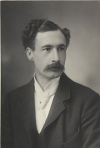
- Reginald Koettlitz was a Belgian-born British physician, geologist and polar explorer in the late 1800s. His adventurous expeditions took Reginald to various locations in both the polar regions.
-
189.Professor Richard Dawkins

-
Richard Dawkins was born in Nairobi, Kenya in 1941 and is considered to be one of the world’s leading scientists. He is an evolutionary biologist and ethologist who proposed that the transmission of genes is the driving force of evolution. This theory was considered controversial by many scientists.
-
190.Sir Richard Owen
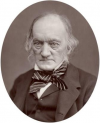
-
Richard Owen was the founder of the Natural History Museum, the namer of dinosaurs, and an opponent of Darwin.
-
191.Richard Spruce
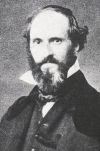
-
Over a period of 15 years, Richard Spruce explored distant and exotic lands to build a collection of specimens that would change the world of science forever. Spruce was a botanist, and spent much of his life deep in the Amazon, following the river from its source in the Andes to its mouth in the Atlantic. His collections have become an exceptionally important resource, and to this day are still carefully stored in institutions around the UK, such as Kew Gardens, London.
-
192.Rita Levi-Montalcini
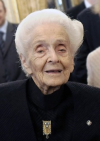
-
Rita Levi-Montalcini was a Nobel-prize winning neurologist who researched and discovered the critical chemical tools that the body uses to detect cell growth and build nerve networks. This paved the way for the study of how those processes can go wrong in diseases like dementia and cancer.
-
193.Robert Brown
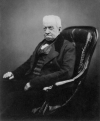
-
Robert Brown was a Scottish botanist who played a huge role in improving plant taxonomy. Among many scientific achievements, he gave the cell nucleus its name, discovered the phenomenon now called ‘Brownian motion’, and was the first to record much of Australia’s flora.
-
194.Robert Chessher
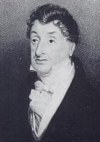
-
Unfortunately, very little is documented about Robert Chessher. He had no successors, and his methods and results were never properly recorded. However, what we do know is that he was a physician who worked to create new inventions when other options weren't available for his patients. He lived in 1750-1831.
-
195.Sir Robert Edwards
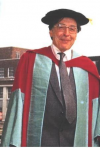
-
Sir Robert Edwards worked in partnership with Patrick Steptoe to develop in vitro fertilisation (IVF) at a time when infertility was not seen as a priority issue. This work has resulted in the birth of millions of babies worldwide.
-
196.Robert Hooke

-
Robert Hooke was a British polymath whose interests varied from physics and geology to architecture. His notable contribution to biology was the observation of cells under a microscope, their description and naming.
-
197.Dr Robert Koch

-
Dr Robert Koch was a German microbiologist and Nobel laureate who is widely regarded as the founder of modern bacteriology. Notably, he isolated the bacteria that cause diseases such as tuberculosis, cholera and anthrax, which in consequent years has helped to diagnose and treat millions of patients.
-
198.Robert Lloyd Praegar

-
Robert Lloyd Praeger was a naturalist, writer and librarian who oversaw the Clare Island Survey. This was the first major biological survey of a specific area.
-
199.Baron Robert McCredie May
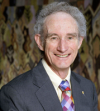
-
Australian-born Robert May is a theoretical ecologist and professor at Oxford and Imperial College London. He has also help posts as the Chief Scientific Advisor to the UK Government, been the president of the Royal Society and is a crossbencher in the House of Lords.
-
200.Professor Roger Tsien
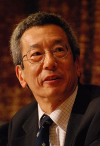
-
Roger Tsien was awarded the Nobel Prize in Chemistry in 2008 for ‘his discovery and development of green fluorescent protein (GFP), with two other chemists; Martin Chalfie (Columbia University), and Osamu Shimomura (Boston University)



